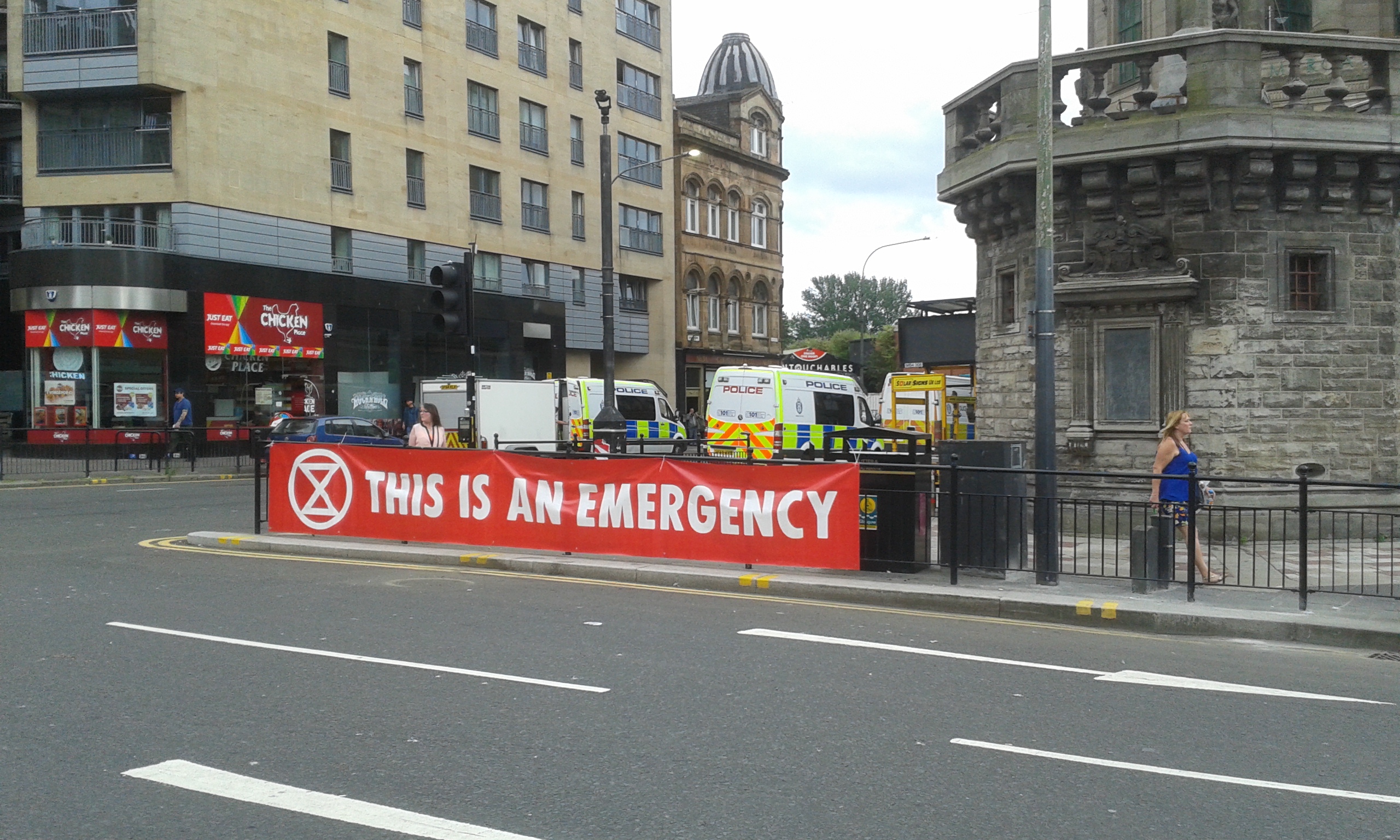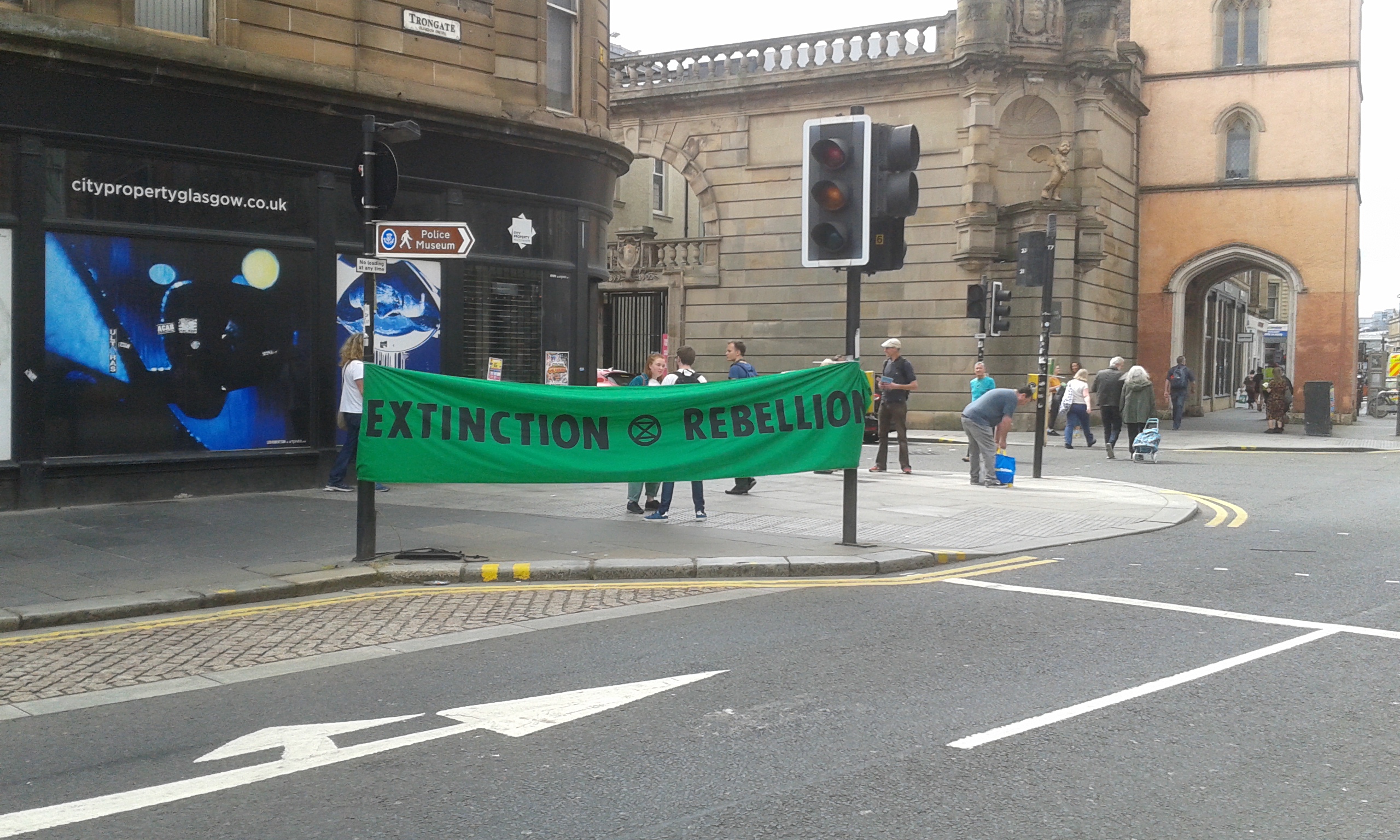Socialists and climate crisis
by Frieda Park
Articles in edition 35 of The Socialist Correspondent both point the finger of blame at capitalist industrial development for climate change and argue for the urgency of developing a broad alliance of forces to find just solutions to the climate emergency.
LEFT LEADERSHIP
To ensure that we are successful in preventing climate catastrophe and in ensuring that the measures we implement to achieve this can actually become opportunities to create a more just and equitable planet then the left must lead the campaign. If capitalism is left to its own devices then action will always remain limited by competition and may in fact fail to halt global warming with the most serious consequences. To protect corporate profits, individuals will be made to bear the costs Individuals will be made to bear the costs. The current dominance of neo-liberal thinking, wedded as it is to the market and against the state, suggests an up-hill battle on this front. But if capitalism is struggling to address this crisis then it is a golden opportunity to argue for the benefits of state intervention to regulate economic activity in the interests of all and for socialism as the system which is capable of acting in the collective interest of humanity.
Whilst there is a broad consensus that climate change is real and of the role of burning fossil fuels in that, the individual and national interests of some are represented by climate denial as expressed by the likes of Donald Trump. This was exemplified by his announcement in 2017 that the USA would withdraw from the Paris Agreement on Climate Change Mitigation.
Yet even individual capitalists know that they cannot sustain profits in a scorched planet hence we are beginning to see a public discourse on stopping climate change. Sir David Attenborough was interviewed on the topic by Prince William for the edification of the attendees at the Davos World Economic Forum. Of course this was also a fig leaf to cover the lack of urgent action on the issue. It got plenty of publicity, however, as do the Extinction Rebellion protests which have been happening in towns and cities across Britain this year: likewise the school climate strikes.
CLIMATE PROTESTS
The climate protests are welcome and positive mobilising people and taking the message out onto the streets, but they have their limitations. To be successful campaigns need to be broader and focused on unifying demands.
Extinction Rebellion was established in 2018 by academics and its jargon-laden and sometimes incomprehensible values and principles reflect a certain liberal culture which is more likely to be alienating than welcoming whatever its intentions. For example, it says it “Welcomes everyone and every part of everyone.” (?) It believes the climate emergency is “beyond politics” and “left and right” and it wants the government to establish, and be led by, a citizen assembly on the issue, like a giant “well informed” focus group. It therefore, doesn’t really say much about policy and believes that by mobilising 3.5% of the population in direct action it can achieve change. It has no democratic structure, but provides a kind of mapping diagram of how it operates. It is a registered company. 63% of its cash comes from crowd funding and the rest is from grants and big donors like LUSH, the bath bomb company which perfumes every high street and the Children’s Investment Fund.
Whilst it has publicised the issue in well-coordinated demonstrations and stunts, unfortunately that is all it is likely to achieve. Its single issue anti-politics means that it will fail to appeal beyond its core supporters or to make much progress. Like similar movements of the recent past it will peter out. In the meantime the media are happy to give it plenty of air time as against campaigns which do see the matter as political and about social as well as climate justice.
WHAT ABOUT THE WORKERS?
Unions and workers in industries which will be affected by a move to a zero carbon economy are understandably concerned to know how such a transition will be managed and are unlikely to be reassured by Extinction Rebellion and others who say that is something for someone else to sort out. There are legitimate questions around how all this will be funded and what will happen to workers whose jobs may become redundant. Even the Green Party, which places itself on the left, fails to fully address such issues and its programme makes no mention of trades unions.
Yet if climate change is to be halted and the left is to lead the campaign with collectivist and progressive solutions, if wide sections of the community are to be won over to see the advantages of a green new deal, then these vital issues must be addressed. In a welcome initiative the Campaign Against Climate Change Trade Union Group has produced a report entitled: One Million Climate Jobs: Tackling the Environmental and Economic Crisis. The report is supported by seven trade unions, including Unite and by the National Union of Students. It argues that it is economically viable to create a million jobs in renewable energy, improving energy efficiency by insulating homes and public buildings free of charge and hugely expanding cheap public transport to get people and freight onto cleaner forms of transit.
Tackling climate change must not be solved at the expense of individuals and communities. Corporations should be taxed to pay for this, rather than charging us all more for power, transport, food etc. There need to be clear plans for workers to be able to move into green jobs with guarantees of work, training, salaries and respect for their skills. Workers and communities should be able to feel proud that they will be contributing to a green, sustainable future for their children.
Labour’s Green Transformation Policy and its different off-shoots, like the Green New Deal and the Green Industrial Revolution provide exactly this opportunity. It is founded on principles such as: dignity at work, social justice, equality and international solidarity. It spells out the links between the green transformation and jobs, improved quality of life in cities, protecting the environment, access to sustainable energy, housing, public transport, sustainable farming and the countryside, government planning and international action. Labour is not just committed to addressing climate change, but to achieving climate justice.
To make this happen Rebecca Long-Bailey, Shadow Secretary of State for Business, Energy and Industrial Strategy says:
“We will need a government that is truly representative and responsive to the public interest, willing to invest to safeguard our future, as well as unashamedly interventionist. We will need modern and participatory democratic institutions, rolling back the privatisations that have led to rip-off energy and public transport costs. Ultimately, tackling the environment and climate emergency will require the UK to reimagine its energy system, transport, agriculture, housing – its entire economy – so that it works for the many, not the few, long into the future.” (1)
(1) The Guardian 27/4/19











